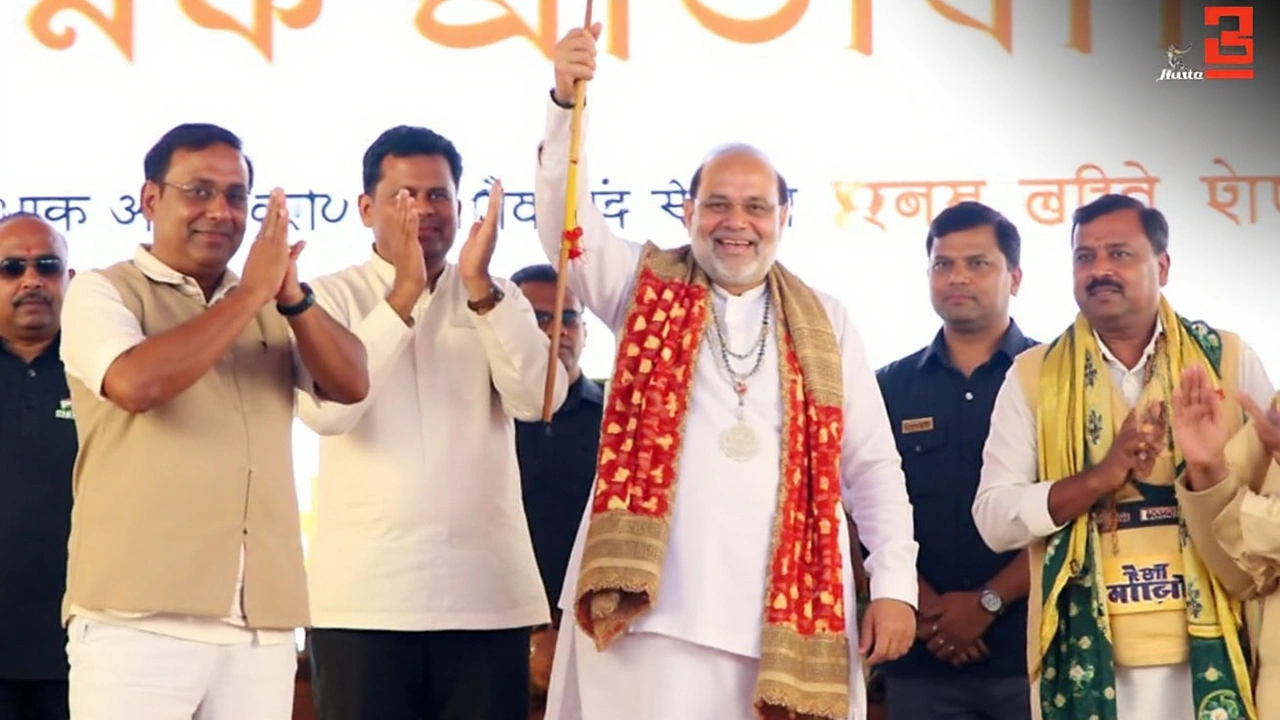
A flashpoint in Parliament spills into Assam’s streets
The clash began on the floor of Parliament and quickly moved to the campaign trail. Union Home Minister Amit Shah openly questioned Congress deputy leader in the Lok Sabha Gaurav Gogoi over alleged repeated visits to Pakistan, pushing a raw national security line into Assam’s already tense political arena. In the middle of a debate on Operation Sindoor, Shah needled Gogoi about how he traveled to Pakistan and whether he understood the terrain and risks Indian soldiers face. Hours later in Guwahati, he repeated the charge in sharper terms, telling supporters that Assam should not be led by leaders who make a habit of going to Pakistan.
Gogoi did not duck the attack. He acknowledged visiting Pakistan in the past and, in a pointed jab, said he went before Prime Minister Narendra Modi’s own stopover in Lahore, adding a quip about going there to eat biryani. The Congress leader painted the campaign against him as political theatre designed to distract from governance questions, while the BJP cast it as a test of loyalties at a time when counterterror vigilance remains a public concern.
This exchange wasn’t a one-off. For months, Assam Chief Minister Himanta Biswa Sarma has accused Gogoi and his family of links to Pakistani entities. He has spoken in public about alleged connections reaching into Islamabad’s establishment, even invoking the ISI, and accused unnamed actors of trying to funnel funds and ideas to undermine India’s security. Those claims have now been packaged into a formal investigation run by the state police machinery.
The SIT, the names involved, and the politics around the probe
On February 17, the Assam government formed a Special Investigation Team to examine what it called “anti-India activities” by Pakistani national Ali Tauqeer Sheikh and his associates. The SIT’s brief, as described by the state, links several threads: contacts with Pakistani nationals, influence attempts targeting Indian youth, and possible financial channels tied to external donors. The probe has drawn in Gogoi’s wife, Elizabeth Coulburn, a British national who works as a project manager with the Delhi-based Climate and Development Knowledge Network (CDKN). The state says Sheikh serves as CDKN’s Regional Director for Asia, and suggests this overlap warrants scrutiny.
In recent weeks, Chief Minister Sarma has said the SIT submitted its report to him and that it contains “startling” details pointing to a broader conspiracy against India’s sovereignty. No specifics have been released in the public domain. Without the report or documents being published, the claims rest on official briefings and public remarks. That gap has become the core of the opposition’s counter-argument: if the case is robust, put evidence on the table or take it to court.
What exactly could an SIT like this do? Typically, such teams collect emails, financial records, travel documents, device data, and testimony from named individuals and their colleagues. They also map institutional links—who worked where, under what contracts, with what funding. If the team believes it has found criminality, it can seek to register cases under sections covering unlawful activities, conspiracy, or foreign funding violations, and forward the file to prosecutors. If it finds nothing solid, it may recommend closure or a narrower follow-up inquiry. Right now, the state’s loud claims sit alongside a quiet process officers usually follow: write it down, verify it, and decide whether it will stand in court.
Here’s what the Assam government says it is looking at, based on its public statements:
- Whether Pakistani national Ali Tauqeer Sheikh and his network engaged in anti-India activities involving Assam-based individuals.
- Whether there were links, direct or indirect, to any agency in Pakistan, including the ISI.
- Whether young Indians were steered toward the Pakistan Embassy or other channels for ideological recruitment or “brainwashing.”
- Whether foreign funds—Sarma even named financier George Soros—were used in ways that could harm national security.
On each front, investigators would need to show a clear trail: dates, communications, money flows, and intent. Courts don’t work on insinuation. They want bank statements, contracts, travel stamps, IP logs, and witness accounts that line up.
Congress, for its part, has doubled down on Gogoi. Despite the cloud of allegations, he was elevated to lead the Assam Pradesh Congress Committee—hardly the move of a party unsure of its man. Internally, Congress leaders argue the BJP is trying to brand every adversary as suspect on national security to shift attention from jobs, floods, and price pressures. They say the SIT is a political cudgel, not a neutral probe. Gogoi’s supporters also note his resume—an English-educated parliamentarian, the son of late Chief Minister Tarun Gogoi, and seen as one of Congress’s few national voices from the Northeast.
For the BJP, this line of attack has a clear aim. Assam votes in 2026. The party has built a strong base under Sarma and wants to keep momentum. A contest framed as “national security versus a compromised opposition” is familiar terrain; it syncs with the central party’s messaging and gives cadres a simple script. Shah’s intervention signals that the BJP will fight the next Assam election on emotion and security as much as on welfare and infrastructure.
The Pakistan angle, though, is a delicate instrument in Assam. The state doesn’t share a border with Pakistan; its anxieties flow more from migration pressures, flood cycles, and economic distress. The BJP’s bet is that national security travels well—that voters who backed tough talk on terrorism nationally will respond to the same tone locally. If the SIT produces verifiable proof, the argument gains teeth. If it doesn’t, the charge can look like overreach.
There’s also the institutional question. If the SIT has found serious wrongdoing, the logical next steps would include FIRs, arrests where warranted, and coordination with central agencies. If foreign funding is part of the story, the Union Home Ministry could examine compliance under the Foreign Contribution (Regulation) Act. If espionage or unlawful activities are alleged, the legal bar gets higher: evidence must be concrete and defensible. Any prosecution will be tested not on TV debates but in courtrooms, and defense counsel will demand the paper trail.
Beyond law and politics, this episode shows how India’s think-tank and development network is increasingly entangled in geopolitics. CDKN is a climate and development platform. Associations with international staff are normal in that world. The legal question is not whether people know each other—it’s whether they conspired to break Indian law. That difference matters. If the state has more than association, it should show it. If it doesn’t, a smear can ruin reputations without remedy.
The stakes for both sides are clear:
- For the BJP, proving its case would reinforce its claim to be the guardian of national security in the Northeast and blunt Congress’s attempt at a comeback under Gogoi.
- For the Congress, beating back the charge would help it present Gogoi as a clean, modern face, and frame the government’s playbook as intimidation.
- For voters, the practical question may still be: who can manage floods, fix roads, create jobs, and keep peace across ethnic lines?
So far, the conversation has been loud but light on documents. Shah’s taunt in Parliament and his follow-up in Guwahati made headlines. Sarma’s hints about “startling” findings kept the story alive. Gogoi’s counter-punch turned it into a duel. What will actually move this from claim to consequence is the release of the SIT’s findings, the registration of cases if any, and scrutiny by courts and the public.
Between now and 2026, expect more of this. The BJP will keep the spotlight on Pakistan, and Sarma will likely drip-feed details from the SIT’s work to build a narrative arc. Congress will try to flip the script—portraying Gogoi as a target precisely because he worries the ruling party. The rest of the campaign will be fought over prices, welfare delivery, floods, and jobs—but the first punch has clearly landed on the Pakistan line, and both sides look ready to throw many more.
